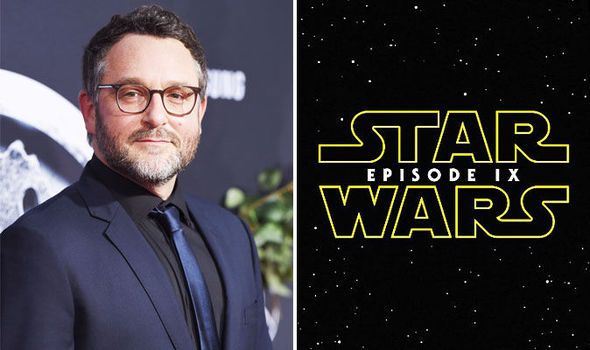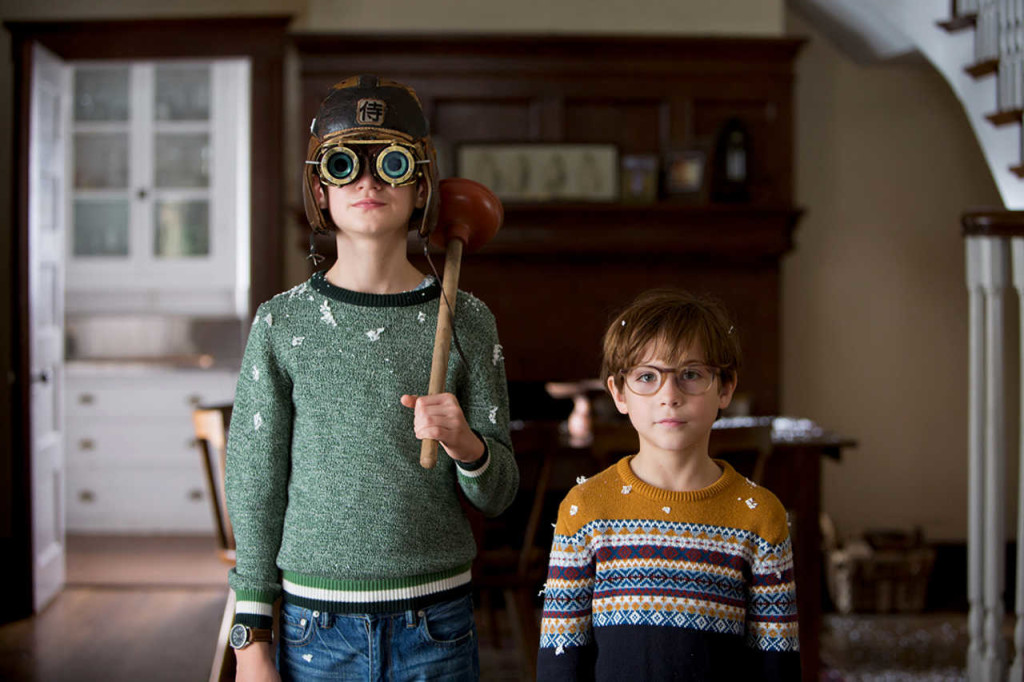So here’s a question for you.
Is the new Star Wars trilogy doomed?
That question is being asked by a lot of people today as Colin Trevorrow’s new film, “Book of Henry,” hits theaters, and is being massacred by every critic with access to wifi (the film is currently at 24% on Rotten Tomatoes).
Trevorrow hit a streak of luck like none other when he was awarded a Jurassic Park sequel after the debut of his first film, “Safety Not Guaranteed.” Despite the film barely grossing 4 million dollars, the people over at Universal felt like Trevorrow was a talent with mega-potential, and hired him to direct Jurassic World.
That movie shocked the industry, becoming one of the biggest box office hits of all time. Trevorrow parlayed that into getting the grandest gig of them all, Star Wars Episode 9.
Trevorrow admits to all of this being a bit fast, and wanted to get at least one more movie under his belt before, what will be, the movie that defines his career.
Which leads us to the quirky nature in which Hollywood constructs its projects, a system, it can be argued, built around a single question: “Who’s hot right now?”
Which begs another question. Was Colin Trevorrow right for Episode 9? Or was he simply hot at the right moment? Was Safety Not Guaranteed really that much better than the 10 other indies that broke out in 2012? How much of Jurassic World’s success can be attributed to Trevorrow and how much was just, “People really wanted to see dinosaurs that summer?” And how confident can anyone be in someone who read Book of Henry and thought, “This is perfect?”
Ironically, this takes us right back to yesterday and the question of, “What’s a good idea?” Cause Book of Henry wasn’t a good idea at all (the biggest tip it violated was number 3, Clarity – “A good idea is one where all the elements come together clearly and harmoniously. The idea is simple to understand and you’re able to imagine the movie immediately.”). Book of Henry was three ideas. Maybe four. Possibly five.
Had Colin just read my review, he could’ve addressed this! But therein lies the singular truth about making films. Ultimately, it’s up to one person on whether they believe an idea is good or not, even if everyone else tells him it isn’t. Let me put it this way: If movies couldn’t be made until everyone agreed that the idea was good, no movie would ever get made. At a certain point, someone has to come forward and say, “I believe in this.”
But, clearly, Book of Henry should not have been believed in. And that leads us back to the question of, “Is Star Wars screwed?” Did we give Trevorrow something he is in no way, shape, or form, ready to tackle?
My answer to that question is two-fold. We did. However, Star Wars is not screwed. Unlike on Book of Henry, where Trevorrow had total creative control, he will not have anything approaching that control on Star Wars. They’re going to tell him if the script sucks and they’re going to make him change things that need changing. The people at Disney are some of the best in the world at story. And you better believe that after this weekend, they’ll all be reading the Episode 9 script again and looking to give notes.
My original Book of Henry script review was a hastily written mess (I was embarrassed while reading it). So here’s the same review, but cleaned up. Keep in mind that the review was written a couple of years ago.
Genre: Drama
Premise: (from IMDB): A single mother discovers a scheme in her son’s book to rescue a young girl from the hands of her abusive stepfather and sets out to execute the plan at any cost.
About: As recently as last month, this was listed as Jurassic World director Colin Trevorrow’s next movie. He’s openly talked about how the script blew him away. I had some of my trusted readers check it out and the score is 3-2 in favor of “awesome.” The problem is, the two who didn’t like it REALLY didn’t like it. This seems to be one of those scripts that divide people. The screenplay is an original story by novelist Gregg Hurwitz, who has 14 novels to his name.
Writer: Gregg Hurwitz
Details: 118 pages
It can’t be an easy transition, going from unknown commodity to the hottest director in Hollywood in a span of two years, although I can imagine worse issues to have.
Trevorrow has repeatedly stated he was resistant to taking the Jurassic World job because he didn’t think he was ready. He had only directed one film. He still needed to perfect his craft. Put plainly, he needed practice.
So even as hype for Jurassic World built, he stated his excitement to get back to small movies, particularly this one, which would be his follow-up to Dino Destruction. The script has been around for awhile, but as far as I know hasn’t been on anyone’s radar. So could this really be that rare diamond in the rough that everyone in the industry missed? Or might it be a piece of coal that has finally found someone to fool?
“The Book of Henry” follows Susan, a single mother to her two sons: her prodigy 12 year-old boy, Henry, and Henry’s younger brother, Peter.
The family doesn’t have much but they get along extremely well, a lot of that due to the precocious Henry playing the role of surrogate father. Henry is the one who keeps this clan clicking.
Henry spends his free time doting over his next-door neighbor, Christina, who happens to be the daughter of the Police Chief, Neil. When Henry finds out that Neil is molesting Christina, he starts concocting a plan to murder Neil.
However, Henry’s plan goes awry when he learns he has a brain tumor. And not just any brain tumor – a really fast-acting brain tumor. Within a couple of weeks, Henry is dead. Talk about a plot twist. Luckily, Henry wills his murder book to his younger brother Peter, and his dying wish is for him and mom to take up where he left off.
So the final third of the movie is Susan and Peter putting together a plan to execute Police Chief Neil, then gaming the system so they can adopt Christina and make her a part of their family. Yes, this plan has multiple layers! But Susan and Peter aren’t geniuses like Henry, leaving the audience to wonder if they’re capable of pulling this super-plan off.
As much as I’d like to, I can’t get behind this screenplay. With that said, as a screenwriting discussion piece? This script is the Ark of the Covenant.
There is so much going on here, I don’t know where to start.
Our main character is killed off midway through the story!
These guys went full Psycho on us!
Except the wimps in Psycho only killed off an adult. Book of Henry kills off a child.
Then there’s the script’s structure, which is less one continuous flowing story than a series of story reboots. The first movie is about a single mom raising a child genius, a la Bobby Fischer. The second movie is a family grieving the death of their child, some “Ordinary People,” if you must. And the last movie is a mother and son – I can’t believe I’m writing this – planning to murder their neighbor. So it turns into “In the Bedroom.”
The tone of the script often plays opposite the subject matter. So in the aforementioned “In The Bedroom,” when the parents decide to kill their son’s killer, the tone’s very dark and intense. Here, you could almost call the tone light-hearted, with mother and son cracking jokes while preparing to murder their prey.
The script is so unlike anything you’ve ever read that you almost have to give credit to the writer for that achievement alone. But as hard as I tried, I couldn’t get on board. And it’s for one of the oldest reasons in the Book of Screenwriting – suspension of disbelief.
I never believed that this mother and son would team up to kill a man. I just couldn’t. In what world does a mother teach her ten year old son to murder? That’s not reality. That’s movie logic. Try to think of any scenario in the real world where this might happen. You can’t. And once you’re introducing human behavior that’s never been seen before, you’re squarely in movie logic world.
I wasn’t surprised to find out this was written by a novelist either. The two readers who didn’t like “Henry” told me they were bored to tears 30 pages in. Indeed, nothing happens in those first 30 pages. It’s pure character set-up. And while that’s fine for a novel, everything needs to move quickly in a screenplay.
The moment I first got hooked in “Henry” was when I discovered Henry might be planning to murder Neil. That came at around page 35. We could’ve gotten to that point 20 pages sooner.
Once you tell the audience that one of your characters is going to do something horrible, you’ve bought yourself some time. We’re going to want to stick around to see that horrible act occur. But if you take too long to introduce that suspense ticker in the first place, you risk losing the audience before you’ve even gotten to that storyline. And that’s what happened here.
And actually, I thought that’s the direction Book of Henry was going. I thought Henry was going to kill Neil, and the second half of the screenplay would be about the family dealing with the aftermath. Not only would that have been a smoother and easier-to-buy-into story, but a compelling drama to boot. Killing Henry off and passing that plan on to mom and bro? It’s just such a bizarre choice.
This is a not an easy screenplay to judge because I admire Hurwitz for trying something different. But being different doesn’t mean being good. Hurwitz asks so much from the reader that, at a certain point, you throw up your hands and go, “Come on, man. That is too far.”
For that reason, this wasn’t for me. With that said, I give credit to Hurwitz and Trevorrow for taking a dinosaur-sized chance. In this industry, you have to stand by your convictions. If you love something despite its warts and warnings, take a shot at it. It’s resulted in great movies before so it will certainly result in great movies again. Just not this one.
[ ] what the hell did I just read?
[x] wasn’t for me
[ ] worth the read
[ ] impressive
[ ] genius
What I learned: For the love of all that is holy, when you have heat on you, STRIKE! Because heat is rare. And when it’s gone, it’s hard to get back. Look at the difference between Colin Trevorrow’s and Shane Carruth’s careers. Both of them wrote and directed small sci-fi films that became critical darlings (“Primer” and “Safety Guaranteed”). Both were offered big projects. Trevorrow decided to take one, and he can now direct any freaking movie he wants to. Caruth, on the other hand, became indecisive when he was hot and faded back into obscurity, not to be heard from again for another 10 years, where he directed a quickly forgotten movie about psychic pigs. I have personally witnessed writers allow other people with ulterior motives to slow them down and not capitalize on their heat, only to lose that heat, along with the interest of half the town. Opportunities are rare in Hollywood. When they come, you must take advantage of them.



